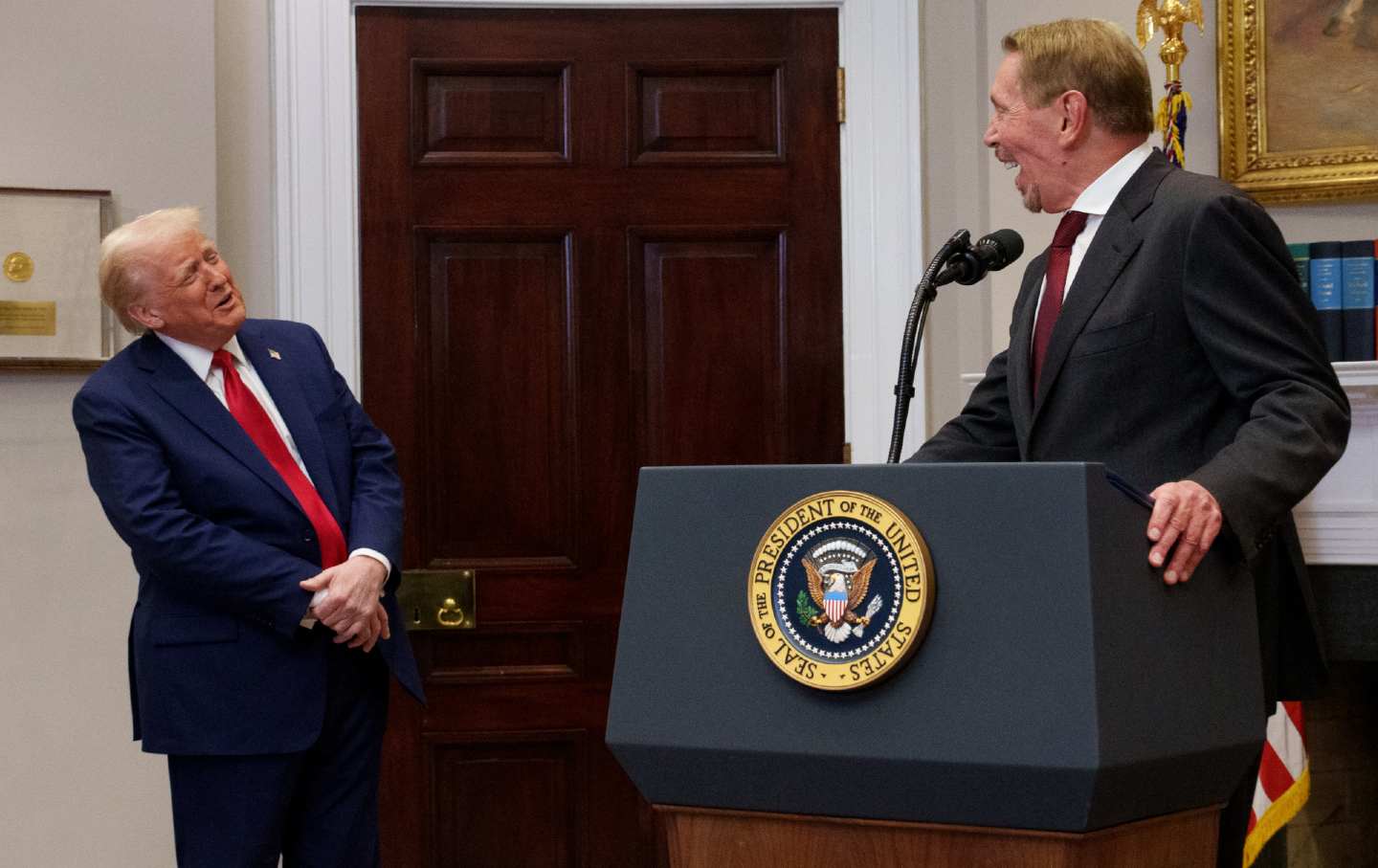
The landscape of social media and digital platforms is increasingly dominated by a cadre of right-wing moguls, fundamentally reshaping public discourse and the flow of information. The recent developments surrounding TikTok underscore this concerning trend, particularly following the controversial handover of control to Oracle’s Larry Ellison. Ellison, a billionaire with strong ties to Trump and the Republican establishment, is now at the helm of a platform utilized by over a third of internet consumers. This is a stark reminder of how concentrated media power can undermine democratic values and the quest for social justice.
In a digital age where social media has become an essential tool for communication, the ascendancy of right-wing figures like Ellison, Mark Zuckerberg of Meta, and Elon Musk of X (formerly Twitter) poses significant threats to free expression and diverse viewpoints. Collectively, these tech titans control the vast majority of social media platforms, effectively enabling them to dictate which voices are amplified and which are silenced. This is not merely an issue of personal bias; it reflects a broader systemic problem where wealth translates into power, enabling elites to shape narratives and control discourse.
Currently, platforms such as Facebook, Instagram, and TikTok, managed by individuals whose ideologies lean heavily toward the right, wield unprecedented influence over public opinion. This consolidation poses significant risks, as these platforms can suppress dissenting views and spread misinformation without fear of accountability, thanks to the legal protections afforded by Section 230 of the Communications Decency Act.
Section 230, which was designed to protect internet platforms from liability for user-generated content, inadvertently shields these corporate behemoths from the consequences of their actions. This means that while traditional media outlets can be held accountable for the information they disseminate, social media giants can amplify harmful, defamatory content without facing similar repercussions. The inequity in this arrangement is glaring; it allows the wealthy owners of these platforms to profit while simultaneously undermining the very foundations of democracy.
Consider the example of Fox News, which recently settled a $787 million lawsuit related to false claims about voting machines. The network was held accountable for the actions of its hosts and guests. In stark contrast, if Elon Musk were to propagate outlandish theories about election fraud, he would likely escape any legal consequences due to the protections of Section 230. This disparity is not just a legal anomaly; it reflects a deeper issue of privilege and power that favors the wealthy at the expense of accountability.
The argument often posited against holding social media platforms liable is based on the sheer volume of content they manage, which is a legitimate concern. However, this is not insurmountable. Similar to the Digital Millennium Copyright Act (DMCA), which requires platforms to respond promptly to copyright infringement claims, we can amend Section 230 to introduce a framework for accountability that prioritizes the protection of public discourse and truth.
Reforming Section 230 could establish a system where platforms are required to review takedown requests for defamatory content. If they choose to ignore valid claims, they would then risk legal action. This would not only hold these corporate giants accountable but also encourage them to create a safer environment for users by curbing the spread of falsehoods.
Moreover, we must recognize that the current media ecosystem is rigged in favor of the powerful. The concentration of power among right-wing elites suggests that the average user is often left without a voice in the public square. By revising Section 230, we can level the playing field, allowing smaller, independent platforms—those less beholden to advertising revenue and corporate interests—to thrive. This shift could provide users with alternative spaces free from the ideological constraints imposed by the likes of Musk, Zuckerberg, and Ellison.
While speculation abounds regarding the potential impacts of such legal reforms, it is clear that any move toward greater accountability is a step in the right direction. The question remains: why should individuals like Musk benefit from the unchecked spread of misinformation and harm to others?
As we navigate this critical juncture, the urgency for reform becomes more pronounced. While a Republican Congress—and a Trump-led administration—will resist any changes that threaten their allies’ grip on power, we must prepare for a future where progressives reclaim authority and advocate for a more equitable media landscape. The current protections under Section 230 represent another facet of a system that favors the wealthy, and it is incumbent upon us to dismantle these inequities in pursuit of a just society where all voices are heard, and accountability is paramount.
This article highlights the importance of MEDIA BY ELITES.


